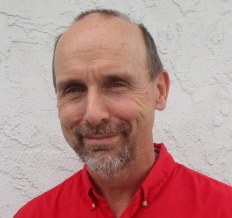
Name: Russell James
Book Title: Q Island
Genre: Horror
Publisher:
Samhain Publishing, LTD.
Thank you for your time in
answering our questions about getting published. Let’s begin by having
you explain to us why you decided to become an author and pen this book?
Russell: My wife talked me into
starting to write. When we were on long car drives, I would tell her stories I outlined
in my head. One day, she told me I should write them down and get them
published. I told her no one would ever want to read anything I wrote. We see
how that turned out.
Q
Island
is post-apocalyptic and I was inspired when I saw what happened in New Orleans
when Hurricane Katrina hit. Society imploded in hours. I wondered what would
happen if that occurred on a larger scale, and with an event that would keep
the isolation permanent. I picked my old stomping ground, Long Island, NY, and
off I went.
Is this your first book?
Russell: No, this is my sixth
novel. I also have a two novellas published, three short story collections and I
am in several other short story collections.
With this particular book, how
did you publish – traditional, small press, Indie, etc. – and why did you
choose this method?
Can you tell us a little about
your publishing journey? The pros and
cons?
Russell: I had two short
stories accepted for publication in small venues. I’d had several novel
manuscripts turned down by multiple agents and publishers. I was taking what I
discovered was a much needed writing class, and the teacher mentioned that the
legendary Don D’Auria was starting up a horror line at Samhain and had an open
call. So I went back and applied my new-found skills to fixing my latest, a
manuscript called Dark Inspiration.
It hadn’t seen the light of day yet, so I figured why not get rejected by
someone famous first. I sent it to Samhain and nearly had a heart attack when
it was accepted.
What lessons do you feel you
learned about your particular publishing journey and about the publishing
industry as a whole?
Russell: Since I’ve also
self-published in tandem with the novels and novella done traditionally, I’ve
seen both sides of the business.
Traditional publishing is slow.
Even though my imprint is quicker than most, the contract to release time is
still a year. But as mentioned before, the publisher does do all the work for
you except the writing. You invest no money in traditional publishing.
Traditional publishing can also get your book almost everywhere. Note that
unless you are with a Big Six publisher (or however many there are today) you
won’t be seeing your book in Walmart, Barnes and Noble or an airport bookshop.
Those spots are for Mr. King, Mr. Patterson, and Mr. Sparks.
Self-publishing is more work,
because you will do everything. Or, if you are sharp, you will pay some expert
to do the things you are not expert at, like cover art and editing. That means
you will invest money. Distribution is more time consuming, and getting paper
books into a brick and mortar store is a virtual impossibility. But all the
royalties are yours. And you can publish exactly what you want to.
In both instances, getting
people to know who you are, and that you have written a book, is an uphill
battle. A publisher helps, but even the big ones leave a lot of the marketing
up to you. And I’ve yet to read about anyone finding the golden key that
unlocks that door.
Would you recommend this method
of publishing to other authors?
Russell: For first timers, I’d
go the traditional route with short stories and longer works through respected
publishers. It is important to get good enough to get past that gatekeeper. It
is too easy to self-publish something awful, and then is out there forever.
There are good self-published works out there, but there are far more poor
ones. Often, what the author thinks is gold is really still straw.
I had a manuscript for a novel
I thought was great. Everyone I sent it to passed on it. Four years later I
re-read the synopsis and thought, “Yeah, that was good!” So I took it out,
thought I’d polish it for a month and sent it out. I re-read the manuscript and
it was awful. I cut 20,000 useless words out of it and completely re-wrote one
of the heroes. So those gatekeepers I cursed years earlier really did me a
favor. The rewritten novel was published to great acclaim as Dreamwalker.
What’s the best advice you can
give to aspiring authors?
Russell: Write every day.
Fiction, not blog posts, Facebook rants or anything else. Those don’t count. Then
read every day. Not just inside your genre, but outside as well. You will
absorb style tips through osmosis.
Most important, be prepared to
get better. And the only way to do that is by people telling you what’s not
working. Those people are doing you an invaluable service. Thank them and give
them a hug. Then fix what you screwed up and try again.






